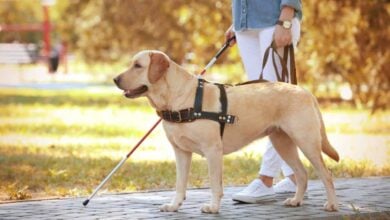17 Best Dogs for Autistic Children: Calming Companions That Truly Make a Difference
When you purchase through links on our site, we may earn a commission. Here’s how it works.
In the quiet moments when words fail, dogs for autistic children often speak the loudest. Their presence can soothe anxiety, bridge social gaps, and build trust where nothing else could.
Table of Contents
Research confirms that autistic children who spend time with dogs show reduced stress and stronger emotional engagement. What if the key to calming a meltdown, easing anxiety, or unlocking a moment of connection was a dog’s gentle nudge?
For many families with autistic children, this is not just hope. It is reality. Studies show that children with autism who regularly interact with dogs experience significantly lower levels of cortisol, the stress hormone, and show marked improvements in social engagement.
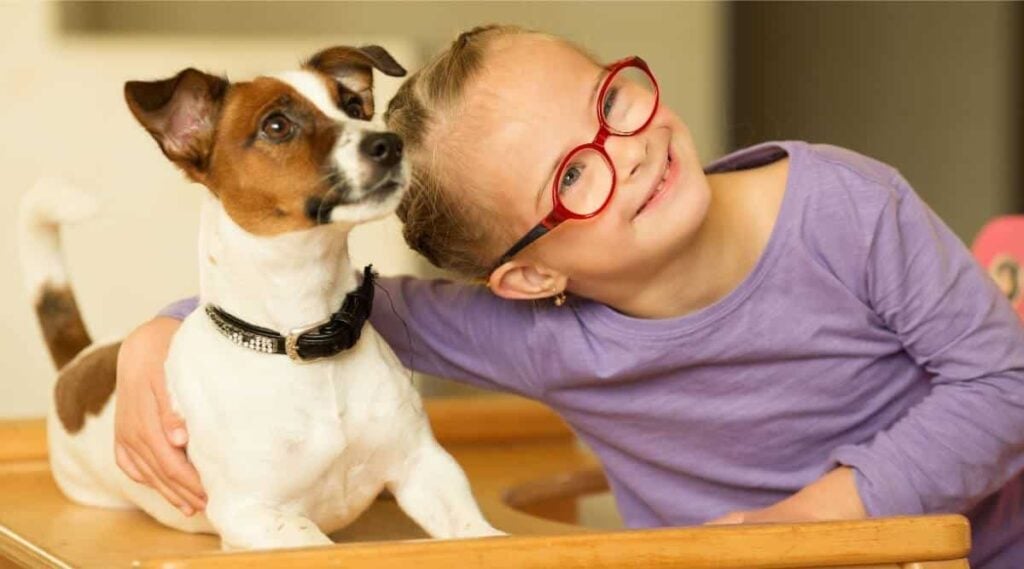
But finding the right dog is not about cuteness or popularity. It is about discovering a breed with the right heart that matches your child’s unique sensory needs, behaviors, and emotional rhythms. Whether you are searching for a trained service dog or a patient, loving companion, this guide will help you choose a dog that fits your family and helps your child thrive.
Understanding Autism: Why the Right Dog Depends on the Right Child
Before choosing the best dog for an autistic child, it’s important to understand why this decision is so personal. Autism Spectrum Disorder (ASD) is not a single condition with one set of traits. Instead, it includes a broad range of behaviors, challenges, and strengths that vary widely from child to child.
As Autism Speaks explains: “Each person with autism has a distinct set of strengths and challenges. How people with autism learn, think, and problem-solve can range from highly skilled to severely challenged. Some may require significant support in their daily lives, while others may need less support and, in some cases, live entirely independently.”
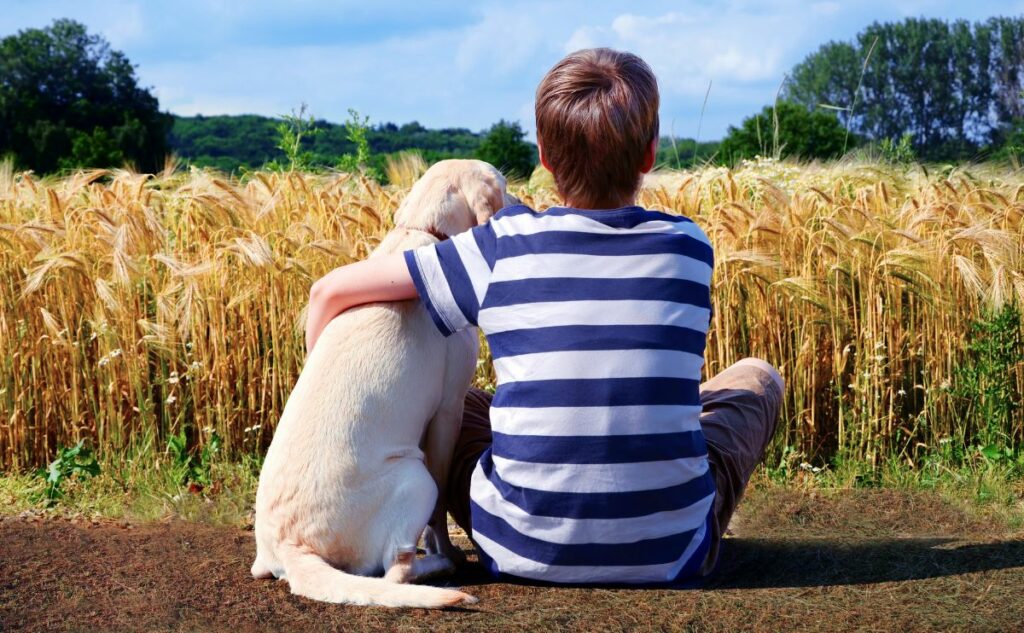
This diversity means there is no one-size-fits-all answer when it comes to selecting a dog. One child might benefit from a specially trained service dog that helps manage public outings and safety. Another might respond best to a gentle therapy dog who offers emotional comfort during transitions or social stress.
For many families, a well-matched companion dog can become a trusted presence at home, supporting emotional growth and daily routines. The key is to consider the specific needs of your child and household.
- What are your child’s sensory sensitivities, communication style, or comfort levels in new environments?
- What kind of dog fits your family’s lifestyle, energy level, and caregiving capacity?
By starting with these questions, you can better match your child with a calm, affectionate, and tolerant canine companion who enriches, not overwhelms, their world.
Companion Dogs: Everyday Allies for Emotional Support
For many families, dogs for autistic children are more than just pets—they are everyday sources of comfort, stability, and connection. Unlike service or therapy dogs, companion dogs don’t require specialized training. Yet, their calming presence can still powerfully impact a child’s emotional well-being.
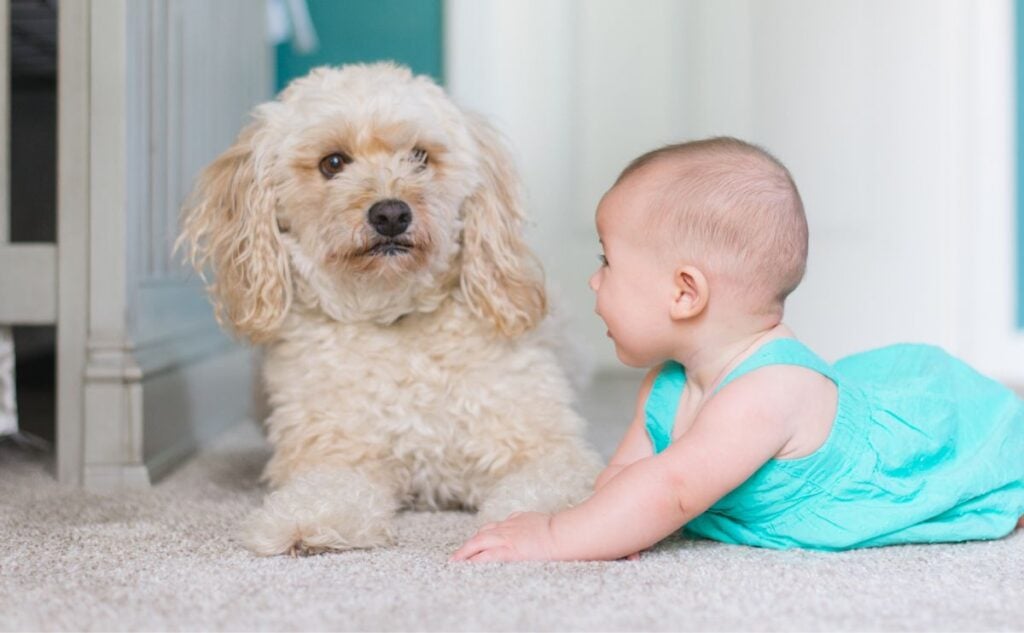
Research has shown that simply having a dog around can reduce stress levels and improve emotional regulation. One study on cardiovascular responses found that individuals experienced less reactivity to stress and recovered faster when a pet was present. Children with autism, who may struggle with overwhelming emotions or sensory challenges, can benefit from this natural calming effect.
Benefits of companion dogs for autistic children include:
- Supporting emotional stability and stress reduction
- Encouraging responsibility and routine through daily care
- Fostering social connections with siblings and peers
- Providing nonverbal comfort through consistent companionship
Adding a dog to the household is a family-wide commitment. However, when all members share in care routines, feeding, walking, and playing, an autistic child gains life skills and a shared interest with siblings and classmates. This can create a valuable bridge to connection and inclusion.
Service Dogs: Specially Trained for Safety and Independence
Service dogs for autistic children are highly trained animals that perform specific tasks to support a child’s unique behavioral and emotional needs. Unlike companion dogs, service dogs undergo extensive training and certification. Under the Americans with Disabilities Act (ADA), they are legally allowed in public places like restaurants, clinics, and schools.
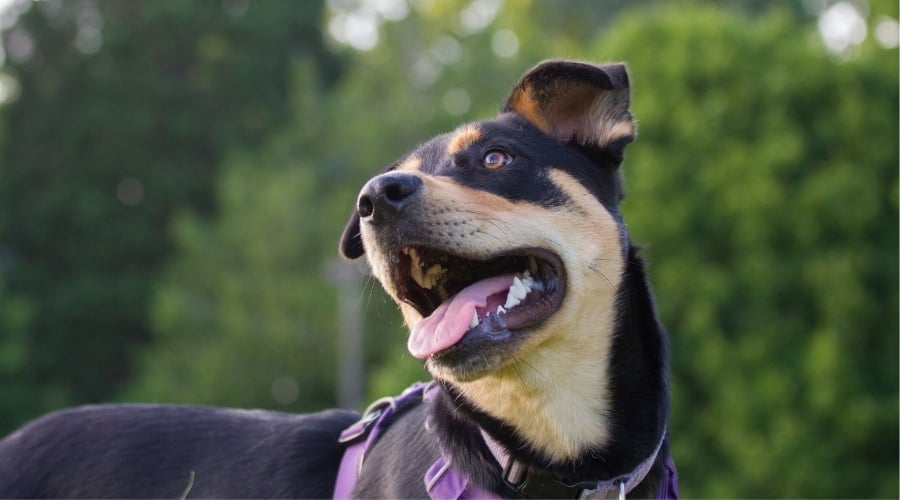
These dogs can recognize signs of distress, help prevent meltdowns, and assist in calming behaviors. For example, a service dog may gently lie across a child’s lap to provide deep pressure stimulation, which has been shown to reduce anxiety and self-harming behaviors.
In critical situations, some service dogs are trained to track a child’s scent if wandering occurs, potentially helping locate the child faster.
Key capabilities of autism service dogs include:
- Detecting and responding to early signs of distress
- Providing calming pressure during emotional overload
- Supporting transitions in public spaces
- Tracking scent if a child wanders
It is important to note that while service dogs are incredibly helpful, they are not a substitute for vigilant supervision. They function best as part of a comprehensive care strategy.
Service dogs typically wear identification vests and require ongoing training to remain effective. Though they can be expensive and involve waiting lists, the safety, independence, and emotional support they provide can be life-changing for families.
Therapy Dogs: Comfort and Connection in Therapeutic Settings
Therapy dogs are trained to offer emotional and psychological support, especially in settings where stress levels are high, such as hospitals, classrooms, or counseling sessions. They are not certified as service animals and do not have the same level of public access, but they still offer meaningful emotional benefits.

For children with autism, therapy dogs can help reduce anxiety, create a sense of emotional safety, and encourage communication during therapy or learning environments. Their calm and affectionate nature makes them ideal companions for children who might be struggling with verbal expression or social engagement.
Therapy dogs can provide support by:
- Calming children during stressful transitions or therapy sessions
- Encouraging verbal and nonverbal communication
- Enhancing focus and participation in therapeutic environments
- Providing steady companionship without judgment
While not all therapy dogs are specially trained for autism, many have the temperament and basic training to be highly effective. Families interested in this route should consider working with accredited organizations, such as those listed on Assistance Dogs International, to ensure proper placement and support.
Emotional Support Dogs: Everyday Comfort Without Certification
Unlike service or therapy dogs, emotional support dogs (ESDs) do not require formal training or certification. Their primary role is to provide emotional stability and companionship for individuals diagnosed with a mental or emotional condition—such as anxiety, depression, or autism.
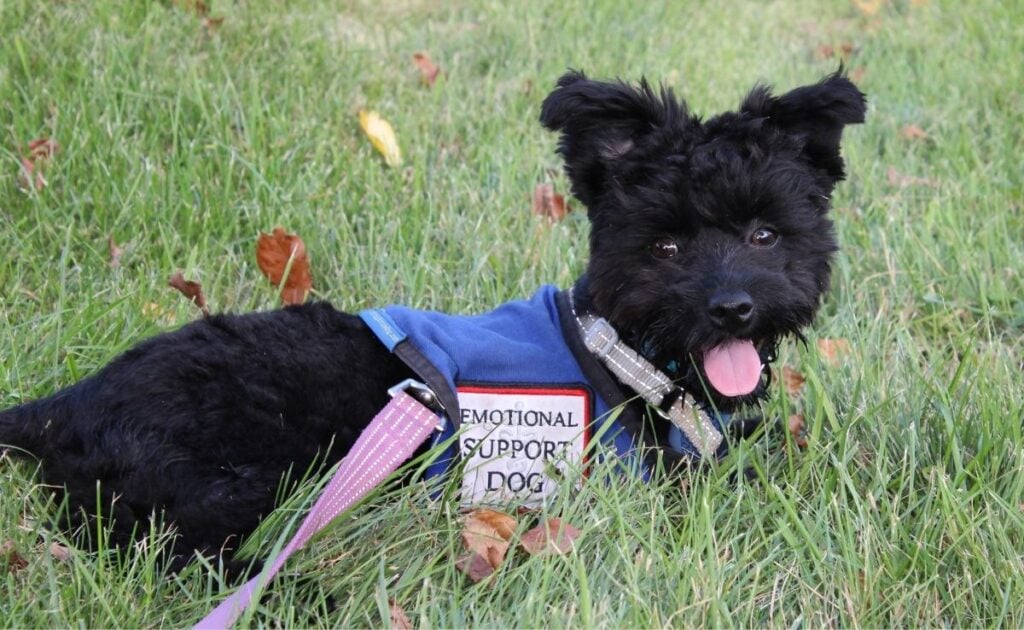
For some autistic children, an emotional support dog offers a constant source of calm and reassurance in the home environment. These dogs help reduce feelings of isolation and offer a comforting routine, especially during times of change or emotional distress.
Key differences of emotional support dogs:
- Do not perform trained tasks like service dogs
- Do not require public access rights under the Americans with Disabilities Act (ADA)
- Can be prescribed by a licensed mental health professional
- May be permitted in housing that typically doesn’t allow pets under the Fair Housing Act
While emotional support dogs are not allowed in all public settings, they can still provide a deeply therapeutic presence at home, helping children regulate emotions and build confidence in familiar environments.
Families interested in this option should speak with a pediatric therapist or licensed psychologist to explore whether an emotional support animal could be beneficial and to obtain proper documentation if needed for housing or travel.
Comparison: Service, Therapy, Emotional Support, and Companion Dogs
| Type of Dog | Training Required | Legal Public Access | Primary Role | Ideal Use Case |
|---|---|---|---|---|
| Service Dog | Extensive, task-specific training | Yes (ADA protected) | Performs tasks related to a diagnosed disability | Managing meltdowns, transitions, and tracking |
| Therapy Dog | Basic obedience and socialization | No (limited to invited environments) | Emotional support during therapy or educational sessions | Schools, hospitals, and structured therapeutic settings |
| Emotional Support Dog | No (protected under the Fair Housing Act only) | Daily emotional support and relationship-building | Provides comfort for diagnosed emotional or mental conditions | In-home support for anxiety, autism, or stress management |
| Companion Dog | No formal training; general pet behavior expected | No | Family pets offer comfort, routine, and social bonding | Family pets offer comfort, routine, and social bonding |
What I Learned About Dogs for Autistic Children, From Inside the Classroom
Working in public education with children on the autism spectrum, I saw firsthand how deeply dogs can impact their lives. A calm, patient dog could completely shift a child’s day, easing anxiety, encouraging communication, and helping them feel safe.

Some students found comfort in reading aloud to a therapy dog, gaining confidence without fear of judgment. Others, overwhelmed by the playground, felt brave enough to join in when their dog was nearby. What amazed me most was how these dogs didn’t just connect with the children. They helped the children connect with each other.
For many of these students, a dog was more than a companion. It was a bridge to the world around them.
Best Dogs for Autistic Children: 17 Breeds That Support Emotional and Sensory Needs
Choosing the right dog for a child with autism is about more than finding a friendly face—it’s about discovering a trusted companion who fits your child’s emotional and sensory world. Whether you’re looking for a companion dog to offer comfort at home, a therapy dog to support social development, or a trained service dog for safety and daily support, the foundation remains the same: calm, loving, and tolerant breeds work best.
Start by talking to your child’s doctor or therapist about what qualities might best support your child’s needs. Many organizations that place service or therapy dogs will guide you through breed selection, temperament matching, and training expectations. If you’re pursuing a certified service dog, be aware that matching can take 1–2 years, and the wait is often worth it for the life-changing impact they provide.
Be Aware: Rescue dogs can make wonderful family pets, but extra care is needed when introducing one to a child with autism. Some children may move unpredictably, make loud noises, or show affection in ways that a rescue dog with trauma may not tolerate.
It’s heartbreaking when a good match turns sour simply because the dog was overwhelmed. For families in this situation, a carefully chosen puppy from a breed known for patience may be the safer, more predictable path.
1. Labrador Retriever
Labrador Retrievers are among the top choices for families with autistic children and for a good reason. Their stable temperament, intelligence, and affectionate nature make them ideal for both service and emotional support roles.

They bond deeply with children and thrive in structured environments. Their eagerness to please makes training easier, even for first-time dog owners.
Labradors are often selected by programs like NEADS for autism support thanks to their ability to remain calm and connected during high-stress situations.
- Best for:
- Active families who enjoy daily walks and interactive play
- Children who need emotional grounding and predictable routines
- Households interested in service dog training or therapy certification
- Temperament:
- Steady, sociable, and affectionate
- Exceptionally trainable and emotionally responsive
- Comfortable in new or stimulating environments
- Considerations:
- Needs daily physical and mental exercise to avoid boredom
- Seasonal shedding requires regular grooming
- May require impulse control training (e.g., jumping or pulling on a leash)
2. Golden Retriever
Golden Retrievers are beloved for their gentle, soothing nature, traits that are especially valuable for autistic children who may struggle with sudden noise, movement, or social anxiety.

They remain calm under pressure and can be a steady presence in the home. Their empathy and ability to “read the room” make them popular in therapy and service settings.
Golden Retrievers also respond well to training and are generally eager to form emotional connections, especially with children. As one of the most recommended dogs for autistic children, the Golden Retriever’s gentle nature makes it ideal for emotional support.
- Best for:
- Families seeking a loving, patient companion
- Children who respond to quiet emotional support
- Homes where emotional sensitivity is as important as obedience
- Temperament:
- Affectionate, gentle, and emotionally aware
- Calm and confident around unpredictable behavior
- Social but not overly excitable
- Considerations:
- Requires brushing and shedding management
- May need boundary training to avoid crowding or clinginess
- Moderate daily exercise is required to maintain focus and behavior
3. Poodle (Standard, Miniature, Toy)
Poodles are highly intelligent and emotionally intuitive, making them an excellent choice for autistic children, especially those with allergies or sensory sensitivities.

They’re available in multiple sizes, from Toy to Standard, allowing families to choose a dog that fits both their home and their child’s comfort level.
Poodles are also known for their ability to learn quickly and respond calmly to emotional distress, often using gentle pressure or quiet presence to soothe. Their temperament and adaptability place Poodles among the most effective dogs for autistic children.
- Best for:
- Families managing allergies or sensory sensitivities
- Children who need a responsive, emotionally attuned dog
- Households that want a dog capable of formal therapy or service work
- Temperament:
- Gentle, alert, and highly intelligent
- Consistent in behavior and comfortable with structure
- Empathetic and observant of emotional cues
- Considerations:
- Needs regular grooming to maintain coat and skin health
- High mental stimulation required; excels with puzzle toys and training
- Sensitive to household tone—does best with calm, positive environments
4. Boxer
Boxers are high-energy but emotionally grounded dogs. They’re optimistic, friendly, and naturally protective, making them strong candidates for families with autistic children who thrive with movement and play.
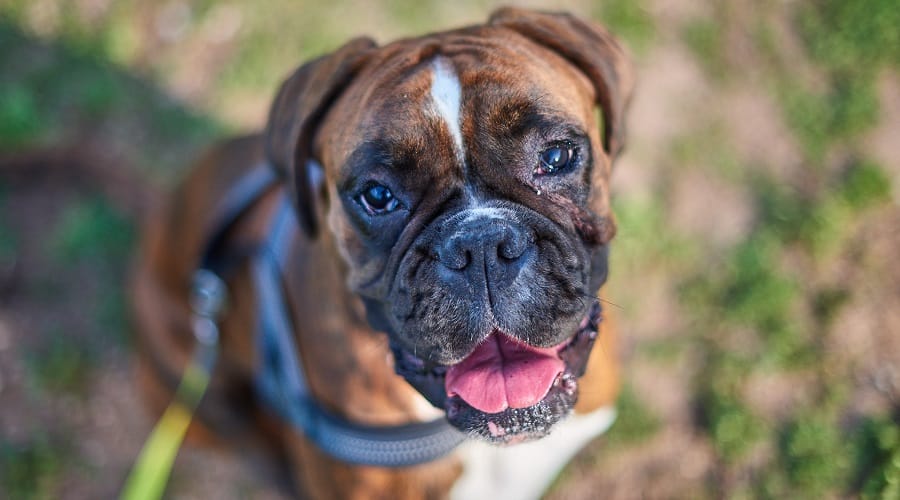
Their expressive nature can help build social engagement, and their loyalty makes them dependable companions once a bond is formed.
While Boxers are often included on service breed lists, their enthusiasm must be matched by firm and positive training to ensure they don’t overwhelm a sensitive child.
- Best for:
- Active families that enjoy outdoor time and structured play
- Children who respond well to energetic, expressive dogs
- Homes that can invest in firm, consistent obedience training
- Temperament:
- Loyal, enthusiastic, and physically affectionate
- Intelligent and motivated by interaction
- Protective but rarely aggressive when socialized properly
- Considerations:
- May be too exuberant for children sensitive to noise or motion
- Needs daily activity and regular redirection to avoid boredom
- Requires early exposure to diverse situations and calm guidance
5. German Shepherd
German Shepherds are highly intelligent, task-focused, and eager to please, traits that make them one of the most trusted breeds in autism service work.
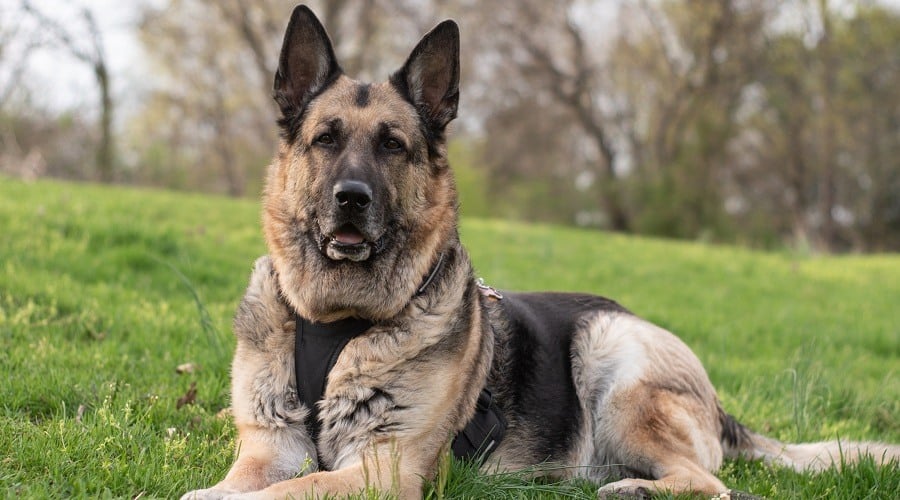
Their large size allows them to physically block a child from bolting, gently interrupt meltdowns, or apply calming pressure during moments of distress. When appropriately trained, they can lie across a child’s lap or place their paws gently to provide grounding input.
German Shepherds are also highly observant. They can recognize early signs of overstimulation or self-harming behavior and act quickly to redirect or soothe their handler.
- Best for:
- Families who can provide structure, consistent routines, and active training
- Children who benefit from a physically grounding, protective companion
- Homes interested in certified service work or autism support training
- Temperament:
- Loyal, observant, and deeply focused
- Emotionally attuned and task-oriented
- Protective yet calm with proper socialization
- Considerations:
- Requires consistent early training and social exposure
- Needs daily mental stimulation and structured activity
- Without clear leadership, may become anxious or overly controlling
6. Great Dane
Great Danes are known as gentle giants, calm, affectionate, and surprisingly sensitive to human emotion. Despite their size, they are often described as “couch potatoes” and adapt well to indoor living if space allows.

Their towering presence can offer a strong sense of security for autistic children who benefit from tactile feedback and consistent routines. Danes are often used in adaptive training programs where their strength, composure, and attentiveness shine.
They’re also naturally friendly toward strangers, making them excellent for building social bridges in public or group settings.
- Best for:
- Families with enough space for a large, calm dog
- Children who benefit from deep-pressure calming or physical contact
- Homes seeking a confident yet low-energy emotional support dog
- Temperament:
- Calm, affectionate, and socially easygoing
- Loyal and tolerant with children
- Steady and emotionally stable
- Considerations:
- Requires space and a home that accommodates its size
- Has a shorter average lifespan than smaller breeds
- Moderate daily exercise is essential but less demanding than you might expect
7. Pembroke Welsh Corgi
Pembroke Welsh Corgis are bright, upbeat, and naturally attentive, traits that come from their herding heritage. While they aren’t trained to prevent wandering, their instinct to stay close to and guide their “flock” can be comforting to parents and children alike.

They are surprisingly adaptable and can thrive in small homes or apartments if given enough daily exercise and mental engagement. Their cheerful nature and responsiveness make them excellent for children who enjoy playful interaction.
- Best for:
- Families in smaller living spaces seeking a smaller, high-energy companion
- Children who benefit from a playful, alert, and interactive dog
- Homes able to provide consistent exercise and engagement
- Temperament:
- Energetic, observant, and friendly
- Tolerant of sudden movement and noise
- Loyal and people-oriented
- Considerations:
- May bark frequently if under-stimulated
- Needs boundaries to avoid herding behavior toward children
- Moderate grooming is required due to shedding
8. Cavalier King Charles Spaniel
The Cavalier King Charles Spaniel is a true companion breed, gentle, affectionate, and happiest when close to their person. Their small size makes them ideal for lap time, snuggling, or sharing a calm moment during emotional distress.

They are especially well-suited for autistic children who need a predictable, comforting presence. Unlike many small breeds, Cavaliers tolerate unpredictable movements, making them safer and more manageable for younger or sensory-sensitive children.
- Best for:
- Families in apartments or smaller homes
- Children who need calm, consistent physical closeness
- Homes prioritizing comfort over high-energy interaction
- Temperament:
- Affectionate, easygoing, and emotionally gentle
- Tolerant of unexpected behavior
- Devoted and non-reactive
- Considerations:
- Can be prone to heart conditions and ear infections
- Requires moderate grooming and regular vet checks
- Not ideal for high-energy play or intense stimulation
9. Newfoundland
Newfoundlands are often called “nanny dogs” for their innate patience and nurturing demeanor. Their immense size can be a grounding force for autistic children, while their calm presence offers a steady source of emotional support.
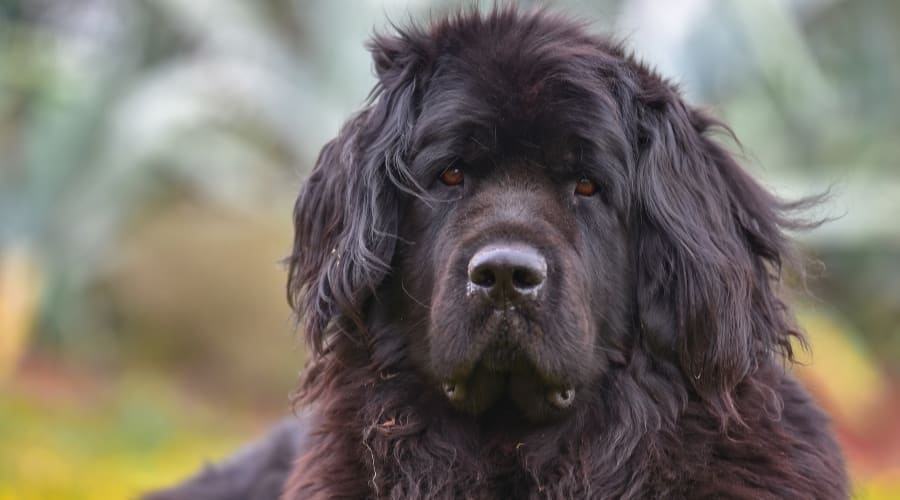
Newfoundlands love children, and children love teddy bears. Hugging a Newfoundland is like hugging a giant teddy bear who loves you back. Their immense size can be both a benefit and a drawback when choosing a pup for an autistic child.
They don’t require much activity, making them a good fit for children who prefer quiet companionship. Their deep-pressure comfort and tolerant personality are particularly helpful during moments of emotional dysregulation.
- Best for:
- Families with space for a large indoor dog
- Children who benefit from physical grounding or sensory pressure
- Calm homes focused on comfort and quiet bonding
- Temperament:
- Extremely gentle, nurturing, and steady
- Quiet but responsive
- Deeply bonded to children and caregivers
- Considerations:
- Heavy shedding and grooming needs
- Shorter lifespan and potential joint issues
- May be physically overwhelming for very small children
10. Bernese Mountain Dog
Bernese Mountain Dogs are gentle, affectionate, and emotionally responsive. They often form deep bonds with one child in the household, providing both comfort and consistency in emotional support.
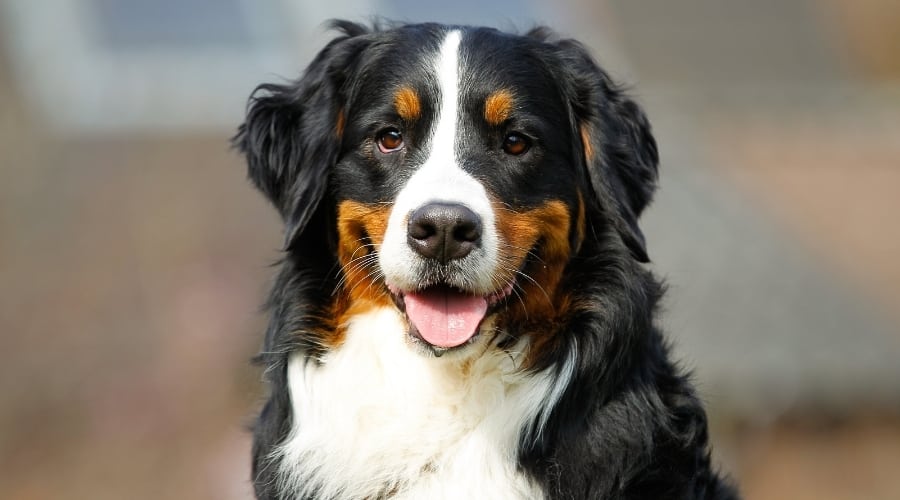
Though large, Berners adapt well to indoor life and are excellent at sensing emotional needs. Their calm presence and huggable size can be especially reassuring to children on the spectrum.
If your child responds best to dogs with size, a Berner makes a very huggable friend. Even with their size, they are friendly with strangers and are relatively easy to train.
- Best for:
- Families with space for a large, affectionate dog
- Children who benefit from physical closeness and emotional support
- Households that can handle grooming and occasional shedding
- Temperament:
- Warm, dependable, and emotionally aware
- Gentle and steady with children
- Social but not overwhelming
- Considerations:
- Sheds heavily and requires consistent grooming
- Shorter lifespan and risk of hip and joint issues
- Needs at least 30 minutes of exercise to stay balanced
11. Beagle
Beagles are cheerful, compact dogs known for their friendliness and enthusiasm. Their playful spirit and eagerness to bond can make them a fun and uplifting presence for autistic children, especially those who thrive on active engagement and affectionate companionship.

Their small size and even temperament make them manageable for younger children, and their friendly nature helps foster social interaction with peers and neighbors. Beagles enjoy group activities, which can naturally encourage children to participate in walks, play, and shared routines.
That said, Beagles can be vocal and are prone to barking, especially when bored or left alone for long periods. Their strong scent drive also means they require boundaries and consistent recall training. They’re best suited for homes that can provide regular structure, stimulation, and outdoor activity.
- Best for:
- Families looking for a small, active, and affectionate companion
- Children who benefit from shared activity and play
- Homes that enjoy outdoor time and can offer daily structure
- Temperament:
- Friendly, expressive, and highly social
- Affectionate and tolerant of children
- Naturally outgoing and adventurous
- Considerations:
- Tends to bark frequently; may trigger noise sensitivity
- Needs regular exercise and enrichment to avoid frustration
- Strong scent drive may require extra training and recall practice
12. Collie
Collies are calm, intelligent dogs with a strong instinct for caregiving. They’re emotionally sensitive and known for forming deep bonds with family members, which makes them a comforting and steady presence for children on the autism spectrum.
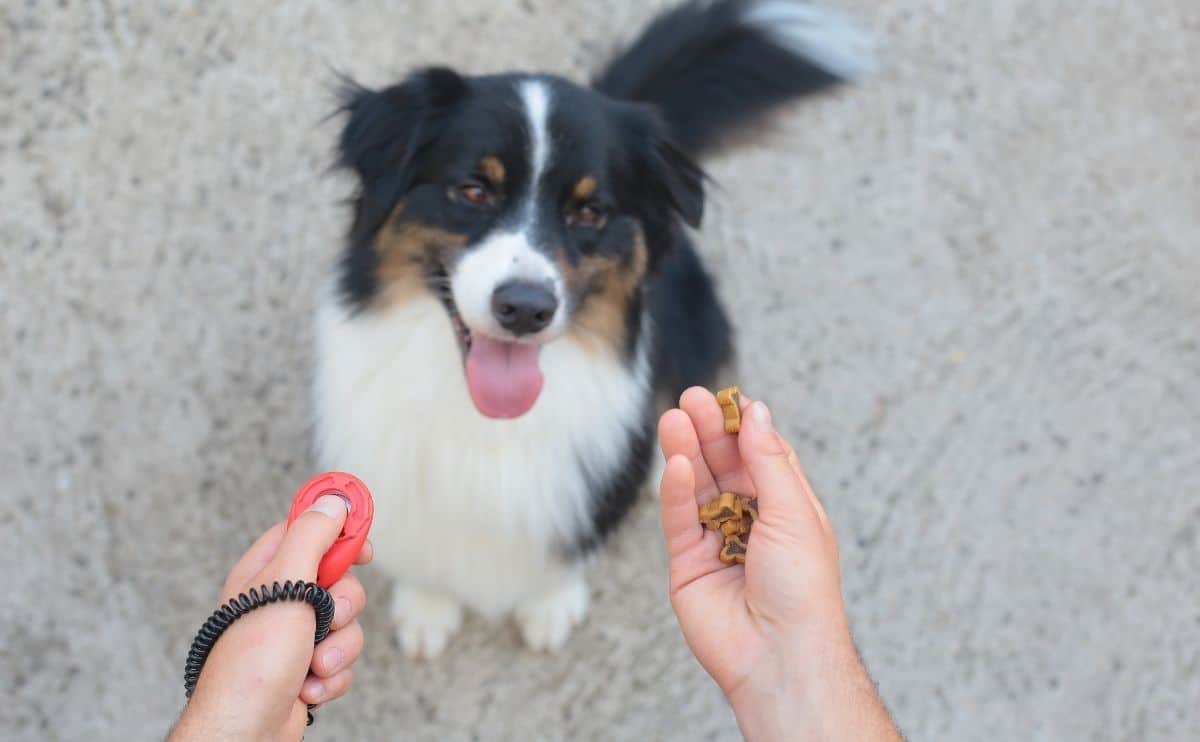
They respond intuitively to changes in mood or behavior and can gently intervene when a child is overwhelmed or upset. Their quiet loyalty and non-intrusive nature make them especially suitable for easily overstimulated children or those who benefit from calm companionship.
While Collies are not as high-energy as some other breeds, they do need daily mental and physical enrichment. Long-haired varieties require regular grooming, and their alertness means they thrive in environments where they feel included and engaged.
- Best for:
- Families seeking a calm, emotionally aware companion
- Children who benefit from stability, consistency, and calm attention
- Homes ready to invest in mental enrichment and moderate grooming
- Temperament:
- Loyal, emotionally sensitive, and highly intuitive
- Patient and calm around children
- Quick learners with a gentle presence
- Considerations:
- Requires brushing and coat maintenance, especially long-haired varieties
- Needs regular stimulation to avoid boredom
- Best in a calm, structured home where their attentiveness is matched by engagement
13. Labradoodle
Labradoodles are a cross between a Labrador Retriever and a Poodle, designed to combine the Labrador’s loyalty with the Poodle’s intelligence and low-shedding coat. This makes them an increasingly popular option for children on the autism spectrum, especially those with allergies.
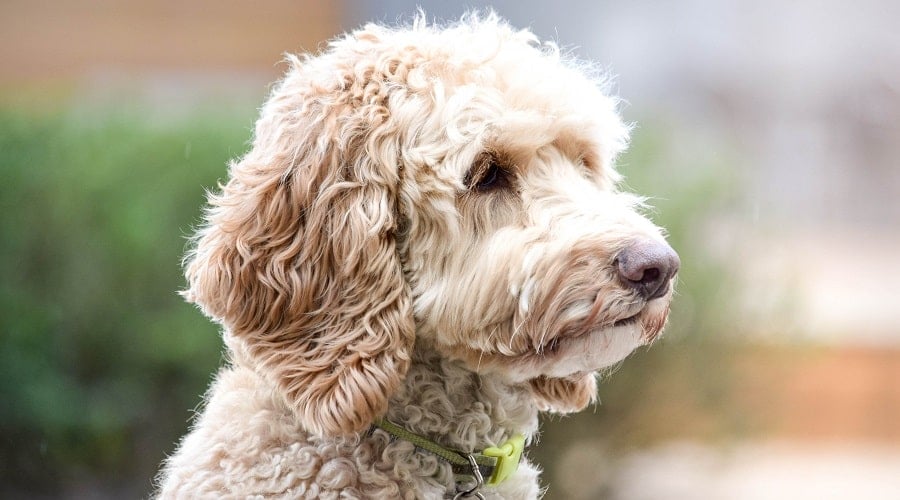
They are emotionally intuitive and love being part of the family routine. Labradoodles often thrive as therapy dogs because they are gentle, eager to please, and easy to train, making them a wonderful choice for kids needing consistent, responsive interaction.
Their enthusiasm does require boundaries and early obedience training. If well-socialized, Labradoodles can become excellent companions that offer affection, emotional balance, and dependable support.
- Best for:
- Families with allergy concerns
- Children who need both physical affection and emotional sensitivity
- Homes committed to regular training and engagement
- Temperament:
- Social, gentle, and playful
- Very intuitive to human emotions
- Balanced energy when well-exercised
- Considerations:
- Needs daily physical and mental activity
- Coat maintenance varies, some require frequent grooming
- May inherit vocal tendencies from the Poodle side
14. Goldendoodle
A cross between a Golden Retriever and a Poodle, Goldendoodles are affectionate, upbeat, and emotionally responsive, an ideal combination for autistic children needing comfort and structure.
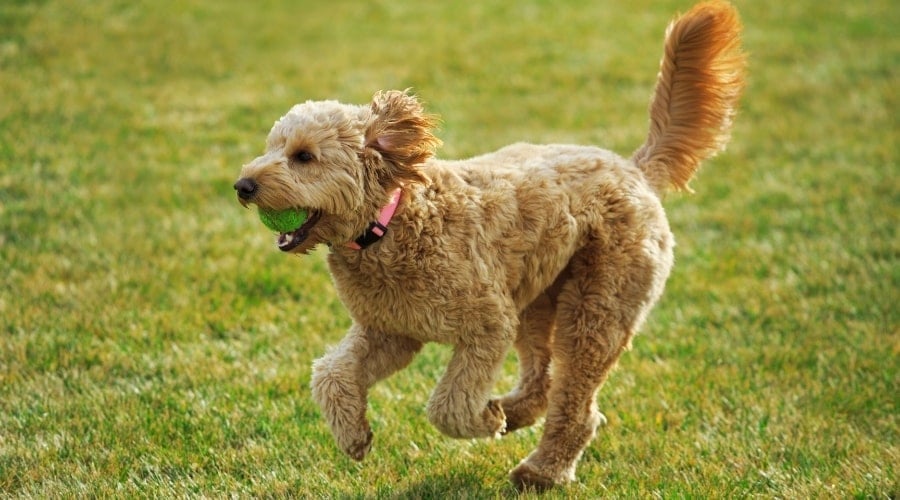
Goldendoodles are often used in school and therapy settings thanks to their friendly demeanor and ability to adjust their behavior to their handler’s mood. Their playful yet sensitive nature makes them particularly comforting for children who struggle with transitions or emotional regulation.
They do require daily exercise and grooming attention, especially for their wavy or curly coats. However, for the right family, a Goldendoodle offers a deeply rewarding and affectionate bond.
- Best for:
- Children who benefit from a highly sociable, emotionally attuned dog
- Families interested in therapy or emotional support roles
- Homes looking for a hypoallergenic, affectionate companion
- Temperament:
- Optimistic, eager to engage, and people-focused
- Adaptable and calm with proper stimulation
- Loyal and affectionate without being overwhelming
- Considerations:
- Coat may need regular brushing and grooming
- Needs meaningful daily activity to avoid restlessness
- Best sourced from reputable breeders for health and temperament consistency
15. Saint Bernard
Saint Bernards are giant, gentle dogs often described as natural caregivers. Known for their nurturing demeanor, they can provide a calming physical presence and steady companionship for children on the autism spectrum.
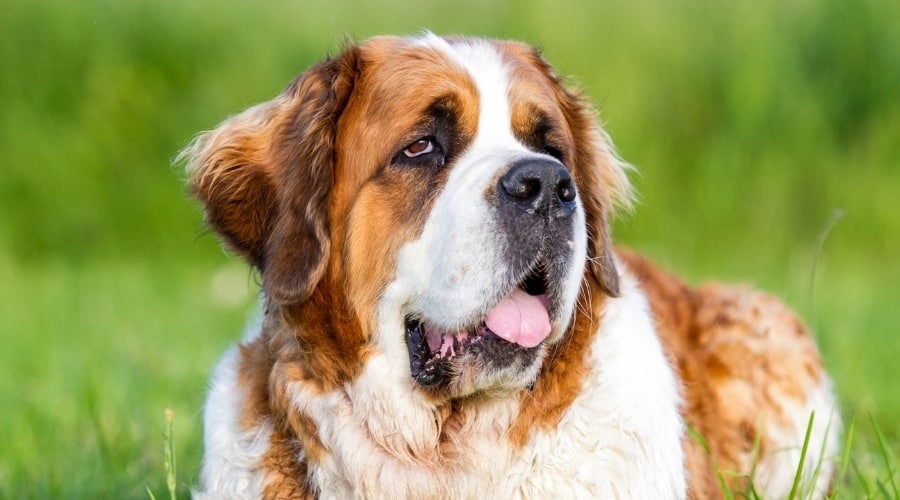
Their large size and mellow energy can make them excellent emotional anchors, especially for children who benefit from deep pressure or tactile input. Saint Bernards are naturally affectionate and tend to form close bonds with family members, offering quiet support without overwhelming stimulation.
Due to their bulk and grooming needs, they’re best suited for homes with space and time for care. Their shorter lifespan is a consideration, but their emotional warmth and protective instincts make them unforgettable companions.
- Best for:
- Children who need physical grounding and calm companionship
- Families with spacious homes and yards
- Parents seeking a dog with strong emotional intuition
- Temperament:
- Patient, affectionate, and gentle
- Protective without being aggressive
- Naturally nurturing with children
- Considerations:
- Large size requires space and supervision
- Needs brushing and care for drooling
- Shorter lifespan compared to smaller breeds
16. Leonberger
Leonbergers are giant, fluffy, and deeply empathetic. Though less well-known, they are increasingly used in therapy and emotional support roles due to their sensitivity and gentle nature.
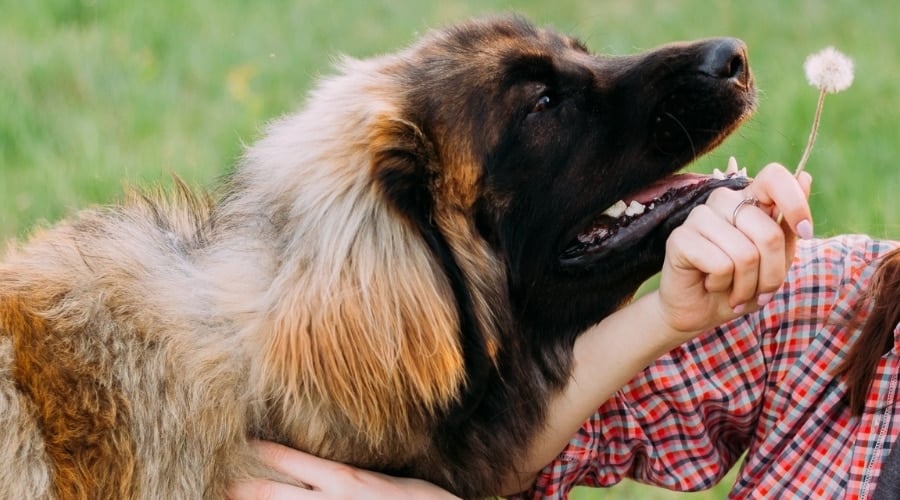
These dogs excel at reading emotional cues and are incredibly patient with children. Their sheer size offers a comforting physical presence, which can help children with sensory regulation, while their calm nature keeps overstimulation at bay.
Leonbergers thrive in homes with structure and early training. Despite their size, they adapt well to indoor living when given adequate exercise and attention.
- Best for:
- Children needing emotional and sensory support
- Families that can provide structure and space
- Homes looking for a quiet, loyal, protective companion
- Temperament:
- Gentle, calm, and emotionally responsive
- Devoted and watchful without being intrusive
- Large but well-mannered with proper training
- Considerations:
- Needs early socialization due to size
- Moderate grooming required
- Best in homes familiar with large-breed care
17. Samoyed
Samoyeds are known for their cheerful expressions and affectionate nature. These fluffy, bright dogs form strong family bonds and are excellent at lifting mood and encouraging social interaction.
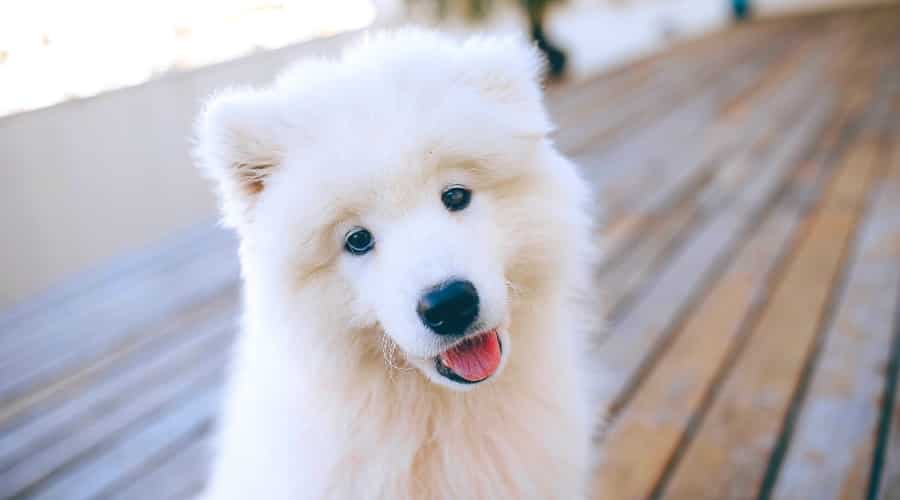
Their friendly and curious personalities help children engage in play and communication. For autistic children who benefit from positive sensory feedback, Samoyed’s soft coats and upbeat demeanor can provide comfort and connection.
They do shed heavily and require daily grooming, so they’re best suited for families who can manage coat care and provide plenty of interaction and activity.
- Best for:
- Children who thrive on playful interaction and tactile connection
- Families with time for grooming and active engagement
- Homes that enjoy expressive, people-focused dogs
- Temperament:
- Outgoing, affectionate, and engaging
- Intelligent and gentle with children
- Enjoys being part of family activities
- Considerations:
- Heavy shedding and high grooming needs
- May be vocal and energetic
- Needs consistent social interaction and daily exercise
5 Ways Dogs Help Autistic Children: What the Research Shows
Choosing the right breed is important, but understanding why dogs are so impactful for children with autism adds even more weight to that decision. In recent years, scientific research has consistently shown that dogs can play a meaningful role in improving emotional regulation, social connection, and even sleep and stress patterns in autistic children.
1. Stress Reduction Backed by Biology
Extensive research continues to highlight the benefits of dogs for autistic children, especially in reducing stress and supporting emotional regulation. One of the most cited physiological benefits comes from a study measuring salivary cortisol—the body’s key stress hormone. Among 42 children with autism, researchers found that the presence of a service dog dramatically reduced the typical morning cortisol surge.
Before the dog was introduced, the Cortisol Awakening Response (CAR) was around 58%. After just a few weeks with the dog, that number dropped to 10%. When the dog was temporarily removed, stress levels rose again to 48%, clearly showing the dog’s measurable calming impact.
2. Calming Effects During Therapy
Dog-assisted therapy doesn’t just feel comforting; it shows instant biological benefits. In a six-week study involving children with autism and Down syndrome, sessions that included dogs led to noticeable drops in stress hormones during the sessions themselves. Children also displayed improved heart rate variability, a marker of nervous system balance and emotional regulation.
3. Better Sleep and Fewer Behavioral Issues
A 2022 longitudinal study followed 42 families over several months after bringing home an autism service dog. The results were compelling: parents reported better sleep patterns for their children, fewer meltdowns, smoother transitions, and calmer bedtime routines. Stress hormones remained lower, and behavior scores improved significantly.
4. Positive Impact on Parents, Too
It’s not just the children who benefit. A study published in PLOS ONE found that service dog placements also significantly lowered parental stress and anxiety levels. The stronger the bond between the child and the dog, the more substantial the reported improvements in the child’s behavior and family well-being.
5. Increased Social Engagement
Therapy dogs have also been shown to act as “social bridges.” In a University of Missouri study, some autistic children spoke more during therapy sessions when a dog was present than during sessions without one. The dog helped ease social pressure and created a nonjudgmental space that encouraged interaction and emotional expression.
In summary, decades of research confirm what many parents already feel instinctively: the right dog can reduce stress, promote calm, encourage communication, and improve family life. Whether you choose a service dog, a therapy dog, or a loving companion, your decision is backed by both science and real-world success.
Being a Responsible Dog Owner: Supporting the Dog Who Supports Your Child
Bringing a dog into your home, especially one meant to support a child with autism—is not just about picking the right breed. It’s a long-term commitment to the animal’s well-being, training, and integration into family life.
Quick Tip: When selecting dogs for autistic children, always prioritize temperament over trend.
Dogs that serve in emotional or supportive roles need structure, consistency, and care to thrive. This means setting realistic expectations, providing daily exercise and enrichment, staying up to date on veterinary care, and making sure the dog feels safe and included in the household.
As part of planning ahead, it’s also worth considering pet insurance, especially for service or therapy dogs. Veterinary care can become costly over time, and having coverage in place can help your family focus on care and connection without unexpected financial stress. While insurance won’t cover everything, it can be a valuable help in the long-term care of your dogs.
It’s also important to consider the needs of your child and the dog as they grow and change together. What works for a young child may shift over time, and your ability to maintain a stable environment will help strengthen the bond between them.
Responsible ownership is the foundation for a healthy, lasting relationship that benefits your child and their canine companion.
Finding the Right Dog for Your Autistic Child
Choosing a dog for your autistic child is a profoundly personal decision, one rooted in love, patience, and hope. Whether you’re considering a loyal service dog, a calming companion, or a friendly therapy pup, the right match can unlock comfort, confidence, and connection for your child.
Every family’s journey is unique, and we’d love to hear yours. Have you found a perfect pup for your child? Share your story in the comments below, and let us know what helped you make the choice.
